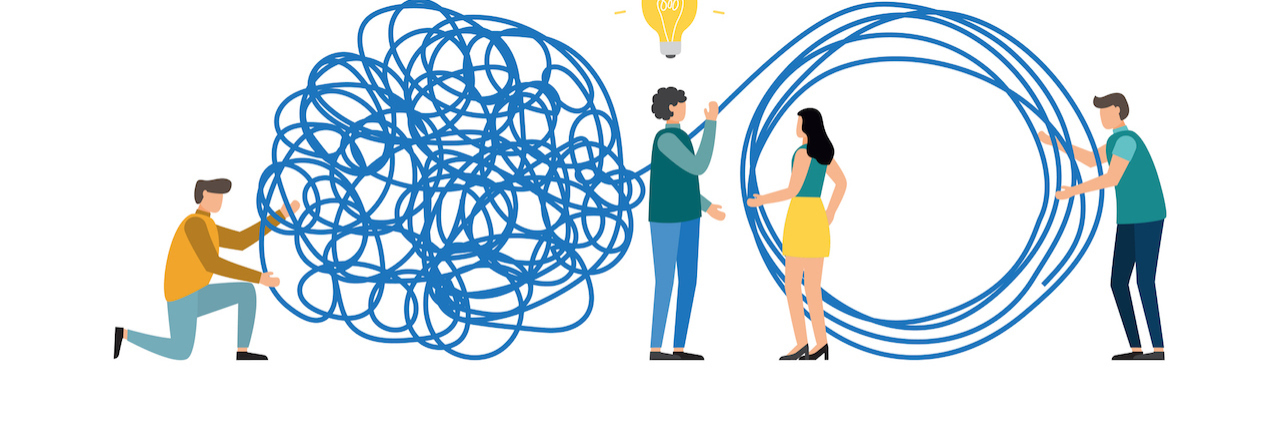13 Things Everyone Should Know About Mental Health Recovery
Editor's Note
Do you use humor to cope? The Mental Health Memes group is for you.
May is Mental Health Awareness Month, which is dedicated to working to end mental health stigma. In honor of Mental Health Awareness Month, I asked a variety of people recovering from mental health conditions what they wish people knew about recovery. Here are 13 important things everyone should know about mental health recovery.
1. Recovery doesn’t just happen.
“Recovery isn’t something you [just experience]… it’s a choice you make every day.” –Justine
2. There’s no particular timeframe for recovery.
“There is no universal timeframe [during which] you’re expected to recover… Also, recognize that there may be times [when] you will relapse or be triggered… and that’s normal and OK, so don’t be too hard on yourself if that happens.” — Christina
“There is no timeline [for recovery], and you can’t ‘get over’ [your mental illness] in one night. [Recovery is] a process that depends on each [person’s symptoms].” — Emma
3. Don’t judge people in recovery.
“Recovery isn’t a straight line, and oftentimes, people are doing the best they can. [People in recovery] never benefit from judgment and negativity. Most people who live with mental illnesses are already harsh on themselves… so just try to love and support them.” — Megan
4. Recovery can bring up trauma responses — and those responses are valid.
“[In recovery], trauma responses are always valid, even if your brain can’t consciously identify the ‘why.’” — Haley
5. Recovery can mean unlearning harmful behavior.
“Sometimes recovery means unlearning the abusive behaviors you learned as coping mechanisms when you needed them the most. [People in recovery] won’t be perfect 100 percent of the time, but we are trying.” — Megan
“Recovering [from mental illness] is about learning to dialogue with the parts of [yourself] that feel protected by disordered behavior and thinking.” — Tali
6. If you know someone in recovery, learn their triggers.
“At times, [those of us in recovery] can be triggered out of nowhere, but if people around us take the time to talk to us about [our triggers], they can better understand [why we’re triggered so they can] help us through the next time.” — Kenzie
7. Sometimes recovery means learning to manage your symptoms.
“Sometimes there is no recovery, just learning to cope and understand your triggers more. Surround yourself with people who are patient in your growth and know that [recovery isn’t] always sunshine and rainbows.” — Lex
8. Rushing recovery could lead to relapse.
“Recovery doesn’t go by very quickly, and it shouldn’t. Rush[ing] someone through their own path [to] recovery is going to make them more likely to relapse.” — Kayla
9. Leaving triggering environments can help you move forward in recovery.
“I’ve found that therapy and support groups have proven so beneficial [in my recovery], but I’ve also made strides by moving out of my sketchy apartment [and] crime-infested hometown and marrying a man who loves and respects me with his whole being.” –Anonymous
10. Seeking mental health treatment is one of the bravest things you can do in recovery.
“Going to [mental health treatment] is a really brave [step in recovery]. Although going to [mental health] treatment is hard, coming home is harder because you’re left to try to implement the [recovery] skills you learned on your own.” — Rebecca
11. Asking for what you need in recovery is not shameful.
“Asking for what [you] need [in recovery], even if it’s just a phone call or time with friends… is nothing to be scared about.” — Larissa
“It’s not shameful to ask for help [in your recovery]; it’s actually one of the bravest acts of kindness [you can show] yourself.” — Adele
12. Recovery is a journey.
“[Recovery] doesn’t happen overnight. It’s a long journey and [there are] going to be ups and downs, lapses and relapses, but [relapses] don’t mean that [you] aren’t working at recovery.” — Neve
“Recovery is a journey full of highs, lows, victories, setbacks, self-reflection and self-love. No matter your mental illness, recovery takes time, effort and dedication, but as you recover, you’ll discover your strength and grow into a more self-assured, resilient version of yourself.” — Kelly
13. Recovery can be difficult — but it’s worth your time.
“Recovery is harder than being in the thick of your [illness]. It takes a lot of work that is sometimes really painful. Avoiding recovery is really easy, and [when you avoid], you get comfortable being in misery and darkness. But avoiding recovery is never fruitful in the long run. The hard work recovery and [recovery] maintenance takes is always worth [your time]. [Recovery can be] hard, but it is so, so worth it.” — Madelyn
“Recovery [can be] hard… and painful. Recovery [can include] relapses… Recovery takes time.” — Anonymous
“At first, letting go of the darkness [of] your mental illness can be scary… Feeling new emotions… and getting better is uncomfortable when you’re used to feeling miserable all the time. But as hard as [recovery] is, face your fears because [being stable and functional] again is worth it.” — Melissa
What would you add?
Getty image via MaksimYremenko

